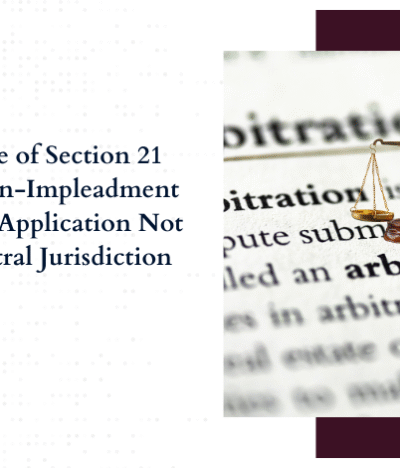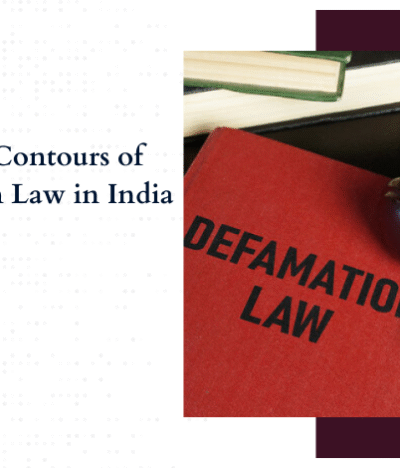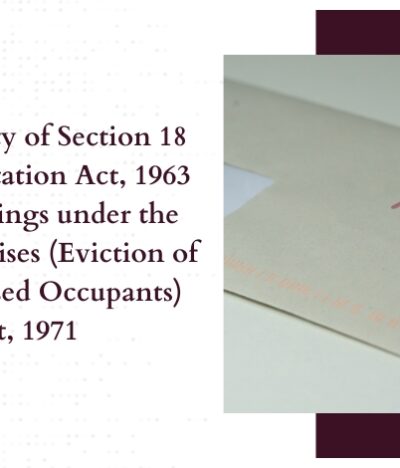How is property distributed after a person’s death with a will in India? When a person passes away leaving behind a will, the process of transferring their property to the designated heirs becomes significantly more straightforward and legally clear. The transfer of property after death with a will in India follows a structured legal framework that ensures the deceased’s wishes are honored, and the property is distributed as per the instructions laid out in the will.
In India, the transfer of property after death with will is governed by the Indian Succession Act, 1925, which provides the legal framework for testamentary succession. The will must be validated through probate in certain jurisdictions. Once probate is granted, the property can be formally transferred to the beneficiaries, ensuring the orderly distribution of assets as per the testator’s wishes.
How to Transfer Property After Death with Will in India
The transfer of property after death with a will in India involves a few key steps, including obtaining probate, if necessary, and following the directives outlined in the will to ensure the property is distributed according to the deceased’s wishes. This process not only respects the decedent’s intentions but also minimizes legal disputes among heirs, ensuring a smoother transition of ownership.
Testamentary Succession
Testamentary succession refers to the distribution of property based on the terms outlined in the will. In this process, the deceased individual (testator) names beneficiaries who will receive their assets after their death, ensuring the estate is distributed in accordance with the testator’s intentions.
1. The Will
A will is a document in which a person, known as the testator, specifies how their property should be distributed after their death. For a will to be legally valid in India, it must comply with the provisions of the Indian Succession Act, 1925. The essential requirements for a valid will include:
- Testamentary Capacity: The testator must be of sound mind and not a minor.
- Voluntary Intent: The will must be made voluntarily, without any coercion or undue influence.
- Signature: The testator must sign or affix their mark on the will.
- Witnesses: The will must be attested by at least two witnesses, who should also sign it in the presence of the testator.
2. Declaration of Title Suit
A Declaration of Title Suit is a legal proceeding initiated to establish the validity of the will and the rightful ownership of the property as specified in the will. The suit seeks a judicial declaration that the beneficiaries named in the will are the lawful owners of the property.
The process involves filing a suit in a competent civil court, where the plaintiff (usually the beneficiary or executor) must provide evidence supporting the validity of the will. This may include presenting witnesses who attested to the will, the original will, title deeds and other relevant documents that prove the ownership. Once the court is satisfied with the evidence, it issues a declaration affirming the beneficiary’s title to the property.
3. Probate (If Required)
Probate is a legal process in which a court verifies and validates a deceased person’s will. It is a crucial step in testamentary succession to ensure the will is genuine and executed according to legal requirements. In India, the probate process is governed by the Indian Succession Act, 1925, and it is also mandatory in some cases, especially if the property is situated in another city, it becomes necessary to be executed in the city where the will is being executed.
The probate process involves the following steps:
- Filing the Probate Petition: The executor named in the will, or an interested party, files a probate petition in the relevant court. The petition must include the original will, details of the deceased, a list of assets and names of beneficiaries.
- Issuance of Notice: The court issues notices to the legal heirs and interested parties, inviting any objections to the grant of probate.
- Hearing and Examination: The court examines the will, hears any objections and may require witnesses to testify regarding the authenticity and execution of the will.
- Grant of Probate: If the court is satisfied with the evidence and there are no valid objections, it grants probate, officially recognizing the executor’s authority to manage the estate according to the will.
4. Mutation of Property
Mutation of property is the process of updating the revenue records to reflect the change in ownership after the transfer of property. This step is essential for establishing the new owner’s title to the property.
The mutation process involves the following steps:
- Application for Mutation: The beneficiary or executor must file an application for mutation with the local revenue office or municipal authority.
- Submission of Documents: The applicant must submit relevant documents, including the death certificate of the deceased, the probated will (if probate was obtained) and proof of ownership such as the property deed. The revenue authority verifies the application and documents. If satisfied with the documents provided the new owner’s name is entered in the records to reflect the new ownership.
5. Documents Required
The transfer of property after death with a will involves gathering and submitting various documents to ensure the process is legally compliant and smoothly executed. The essential documents required include:
- Death Certificate
- Original Will
- Identification Proofs
- Legal Heir Certificate
- Property Documents
- Succession Certificate
- Any Other Relevant Documents
Common Challenges of Transferring Property in India
The following are Common Challenges of Transferring Property in India
Title Disputes
Title disputes are a common challenge in property transfers. These disputes arise due to conflicts in the ownership history of the property. It is required to have a clear chain of ownership to validate a transfer. However, historical inaccuracies, fraudulent transactions or unregistered transfers can lead to disputes.
Joint Ownership Disputes
Properties held in joint ownership often face legal disputes among co-owners. Legal challenges arise when co-owners disagree on the terms of the transfer or if one co-owner attempts to transfer the property without the consent of the others. Resolving such disputes requires legal intervention to ascertain the rights of each co-owner and to facilitate a consensual transfer, which can be a lengthy and contentious process.
Legal Documentation
The preparation and verification of various legal documents are essential. This includes sale deeds, title deeds and encumbrance certificates. Each document must be meticulously prepared to ensure there are no legal loopholes or inaccuracies. The complexity of these documents and the need for precision make this a significant challenge, often necessitating legal expertise to navigate effectively.
Disputes and Litigations
Properties often have ongoing disputes or litigations that can hinder the transfer process. These legal issues can arise from multiple claims on the property, boundary disputes or inheritance disagreements. Resolving such disputes can be lengthy and costly, requiring legal intervention and potentially delaying the property transfer significantly.
Conclusion
The transfer of property after death with a will in India is a multifaceted process that demands careful adherence to legal procedures and thorough documentation. Testamentary succession ensures that the deceased’s wishes are honored, but it requires the validation of the will through probate and possibly a declaration of title suit to confirm the beneficiary’s rights. Subsequent steps like mutation of property and submission of essential documents solidify the transfer, reflecting the new ownership in official records. However, challenges such as title disputes, joint ownership conflicts and the intricacies of legal documentation can complicate the process.
Ensure a Smooth Property Transfer Today
Proper legal compliance and meticulous documentation are paramount in the property transfer process to prevent future disputes and legal complications. Ensuring all legal requirements are met and the necessary documents are accurately prepared and submitted can significantly reduce the risk of disputes. With extensive expertise in handling property transfers, ACM Legal offers personalized legal solutions to ensure compliance and efficiency at every step of the process. Our dedicated team is committed to guiding you through the complexities of property transfer, addressing any challenges and safeguarding your interests.
FAQs
1. How to transfer property after death with a will in India?
In the transfer of property after death with a will in India, the beneficiary must first obtain the deceased’s death certificate and the original will. If required, a probate petition should be filed in a competent court to authenticate the will. Once probate is granted, the executor can apply for mutation of the property in local municipal or revenue records. After verification, the property records are updated to reflect the new ownership, completing the transfer process.
2. What documents are needed to transfer property after death with a will?
The following documents are required for transfer of property after death with a will in India:
- Death Certificate
- Original Will
- Identification Proofs
- Legal Heir Certificate
- Property Documents
- Succession Certificate
- Any Other Relevant Documents
3. What steps are involved in starting the probate process in India?
Starting the probate process in India involves filing a probate petition in a competent court by the executor. The petition should include the original will, the deceased’s death certificate, details of the deceased and beneficiaries and a list of the deceased’s assets. The court then issues notices to the interested parties, inviting objections. During the hearing, the court examines the will’s authenticity, hears any objections, and may require witness testimony. If satisfied, the court grants probate, officially recognizing the will and the executor’s authority to administer the estate.
4. How long does it take to transfer property with a will in India?
The time required for the transfer of property after death with a will in India varies but typically ranges from a few months to over a year. The process includes obtaining the death certificate, getting the will probated (if required), and completing the mutation of property records. Delays can occur due to probate proceedings, legal challenges, bureaucratic procedures and verification of documents.
5. Can the executor of a will revoke the property transfer?
No, the executor of a will cannot revoke the property transfer. The executor’s role is to implement the wishes of the deceased as outlined in the will. Once the will is probated and the property transfer process is legally initiated, the executor must carry out the transfer according to the will’s terms. Any attempt to revoke the transfer would be against their fiduciary duties and could result in legal consequences.






